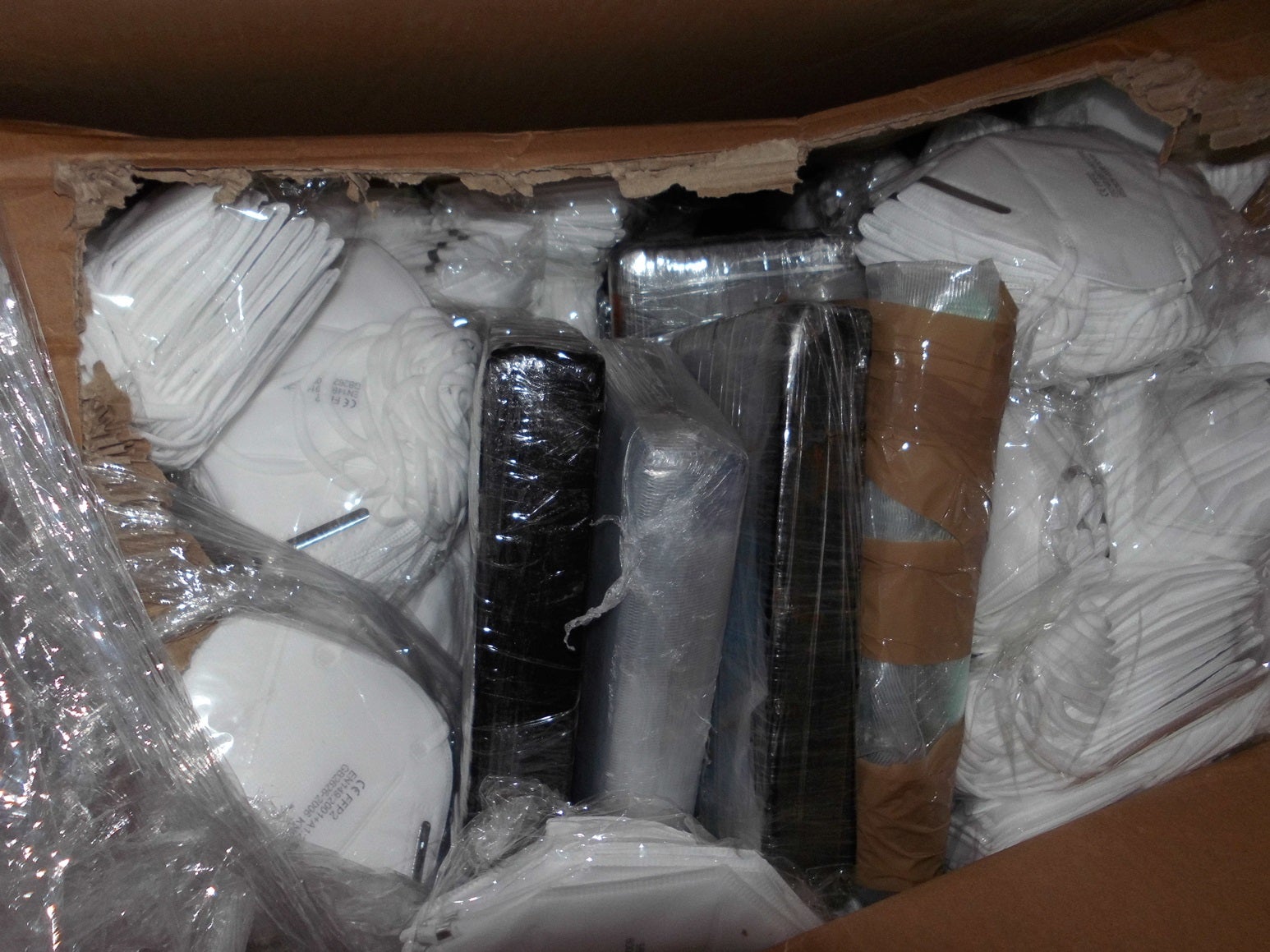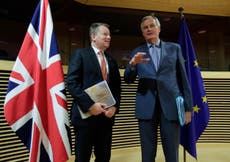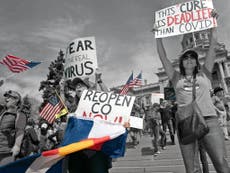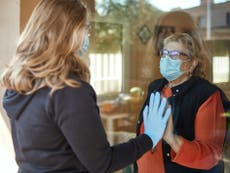Coronavirus crackdown sees £15m cash, tonnes of drugs and guns seized from gangs across UK
Lockdown restrictions and fall in overall crime gives officers 'greater ability to proactively police'

Police have seized more than £15m in cash, tonnes of drugs and guns including an AK-47 in a nationwide crackdown on gangs enabled by the coronavirus outbreak.
The director-general of the National Crime Agency (NCA) said restrictions had “made criminal groups take additional risks” while moving cash and drugs.
“It has become harder for criminals to conceal the proceeds of their crimes,” Lynne Owens told a remote press conference on Thursday.
“This appears to have resulted in criminals moving larger quantities in one go rather than smaller, and more frequent amounts.”
She said that during the lockdown period since March, at least £15m of cash believed to be the proceeds of crime had been seized across the UK.
Other criminal assets were also discovered during the raids, at properties and on lorries and shipping consignments at ports.
Ms Owens said several tonnes of drugs, including cocaine and heroin, had been seized “before they can create harms to our communities in the UK”.
There has also been an increase in firearm seizures, with 39 guns including an AK-47 and Scorpion semi-automatics recovered in eight weeks.
The NCA has made 130 arrests related to serious and organised crime during the period, and Ms Owens said taking away gangs’ cash would prevent them “investing in further criminality”.
Martin Hewitt, chair of the National Police Chiefs’ Council (NPCC), said the crisis had unexpectedly given officers “extra capacity” by reducing normal crime levels.
Overall offences were down quarter in the month to 10 May, compare to the same period in 2019.
Recorded shoplifting has fallen by more than half, vehicle crime by 41 per cent, residential burglary 36 per cent and assault by 30 per cent.
Police leaders said the stark reduction was “no surprise” in light of the lockdown restrictions and closure of pubs and the night-time economy.
Mr Hewitt said that only 7 per cent of officers and staff in England and Wales were absent due to coronavirus, leaving forces “in excellent shape and with a greater ability to proactively police”.
“As we’re able to focus more attention and resource on our intelligence sources, we with colleagues from the NCA have been successful in executing warrants around the country, clamping down on gangs, serious and organised criminality, the drugs trade and prioritising violence reduction,” he added.
Chief Constable Andy Cooke, the NPCC lead for crime, said it had falling crime had given police more time to investigate and “resulted in some of the highest detection rates I can remember in my 35 years of policing”.
He added: “Criminals are criminals - they’re not going to stop doing their business just because we have a pandemic. Your gangs, your burglars are still out there.
“The good news is that there are far more police officers proactively targeting them.”
Fraud is believed to have risen during the outbreak, including a spike in sales of fake or non-existent protective equipment, and Ms Owens said the NCA was monitoring phishing scams and the potential abuse of government financial schemes.
The only other types of offences known to be rising during lockdown are domestic abuse, up 4 per cent in the month, and assaults on emergency workers including spitting and coughing incidents.
Mr Hewitt acknowledged that the domestic abuse figure was much lower than the rises in reports to charities and helplines, and said police were monitoring data from partners.
Police leaders are preparing for the further easing of coronavirus restrictions, and the impact of a financial recession caused by the global pandemic.
Ms Owens said there was a “strong possibility” that smuggling gangs would target lorry drivers and port officials by preying on financial insecurity.
“There is no doubt that criminals do things for money and if they’re moving drugs, firearms or people they will see an opportunity,” she added.
Sunseekers head to beaches amid lockdown measures
Show all 7“If there is an economic downturn and an increase in migration that will be a risk and we need to be on top of it.”
Police are attempting to prevent violent crime from returning to pre-coronavirus levels, following a spate of stabbings and shootings in recent days.
Officials said that work attempting to convince violent offenders to change their ways that was pioneered by the Metropolitan Police is being mirrored across the country.
“As measures ease, we will bear down crime and do all we can to try and prevent it rising to pre-lockdown highs,” Mr Cooke said.
“We are confident in our resilience, and we will work closely with partners across law enforcement and the criminal justice system to meet challenges that arise as we move through the stages of the national response to Covid-19.”
Subscribe to Independent Premium to bookmark this article
Want to bookmark your favourite articles and stories to read or reference later? Start your Independent Premium subscription today.








